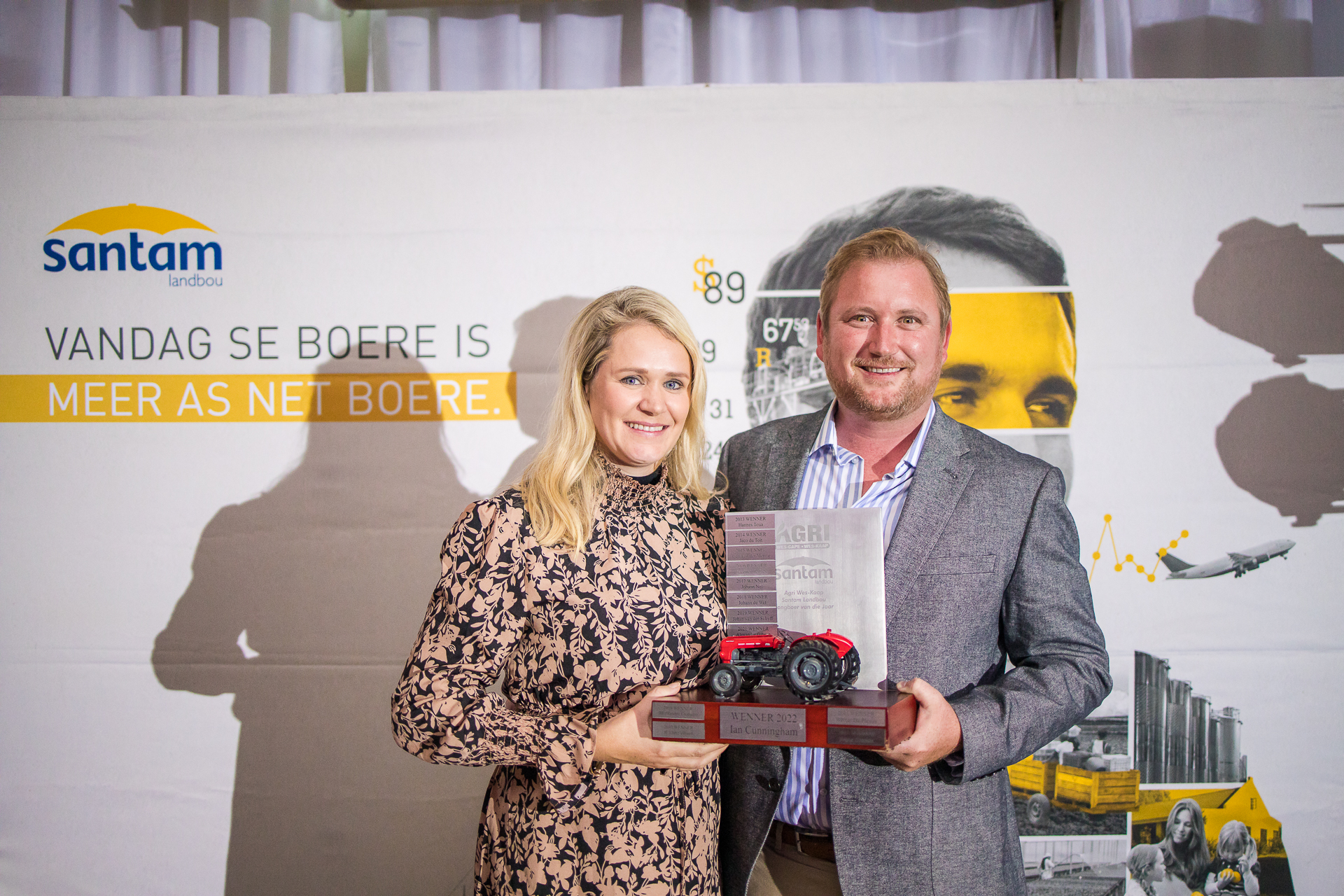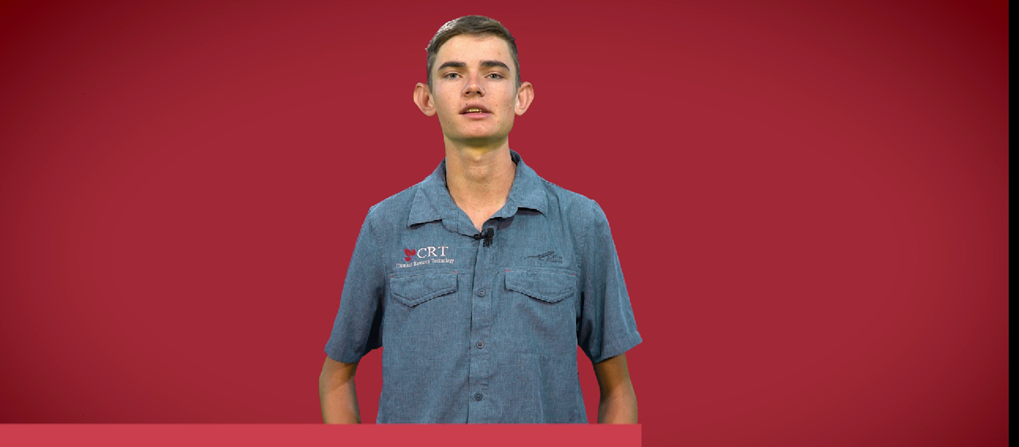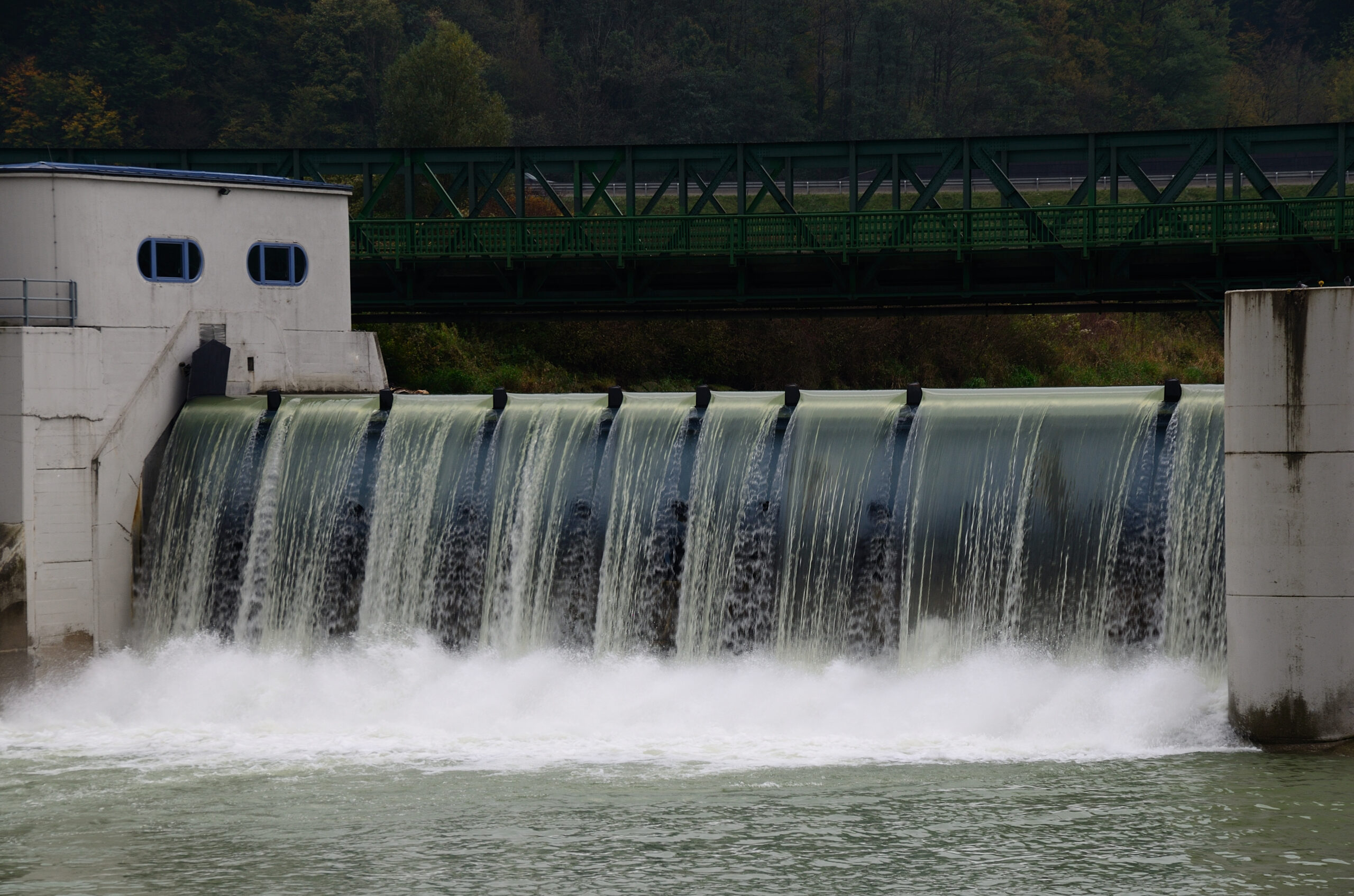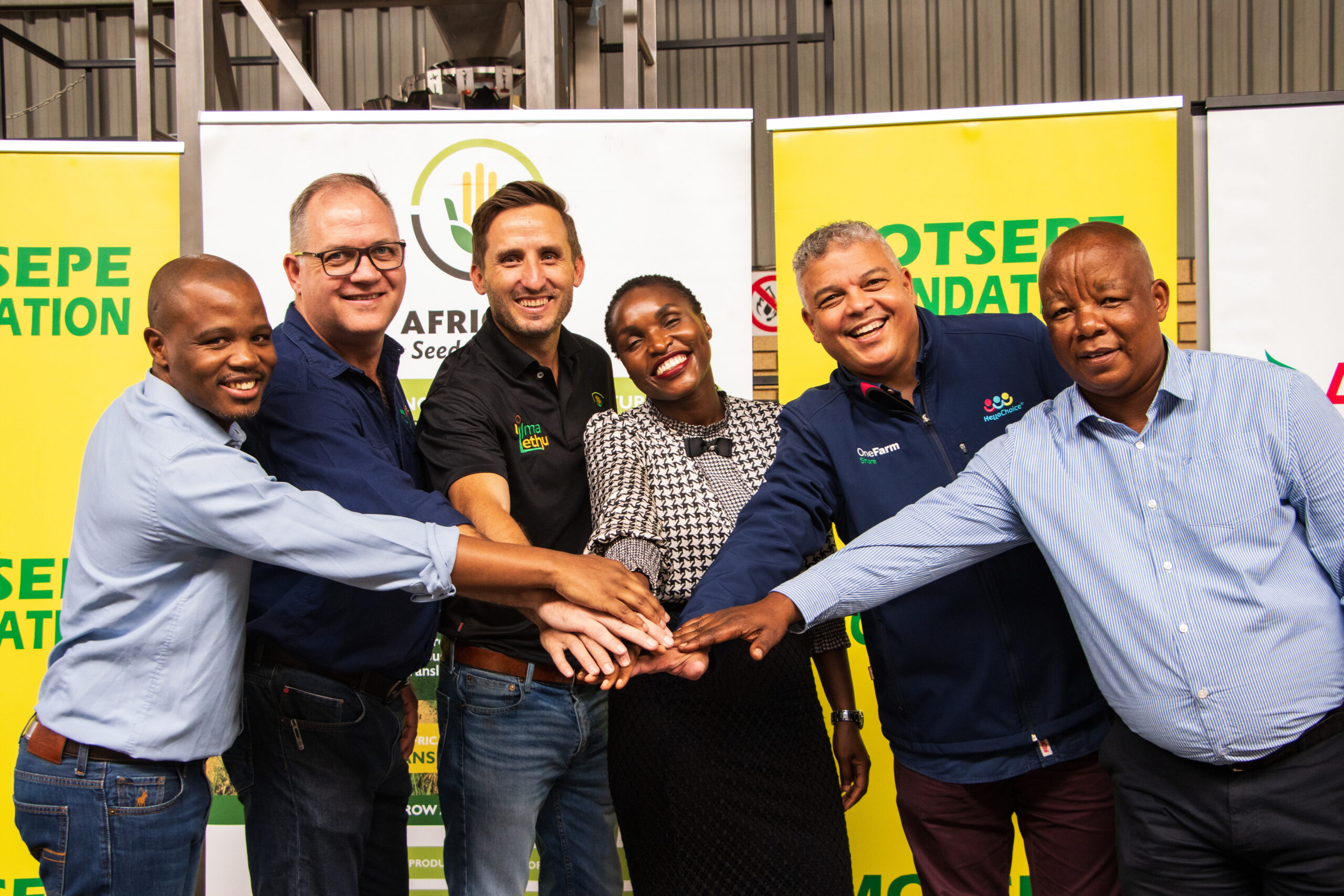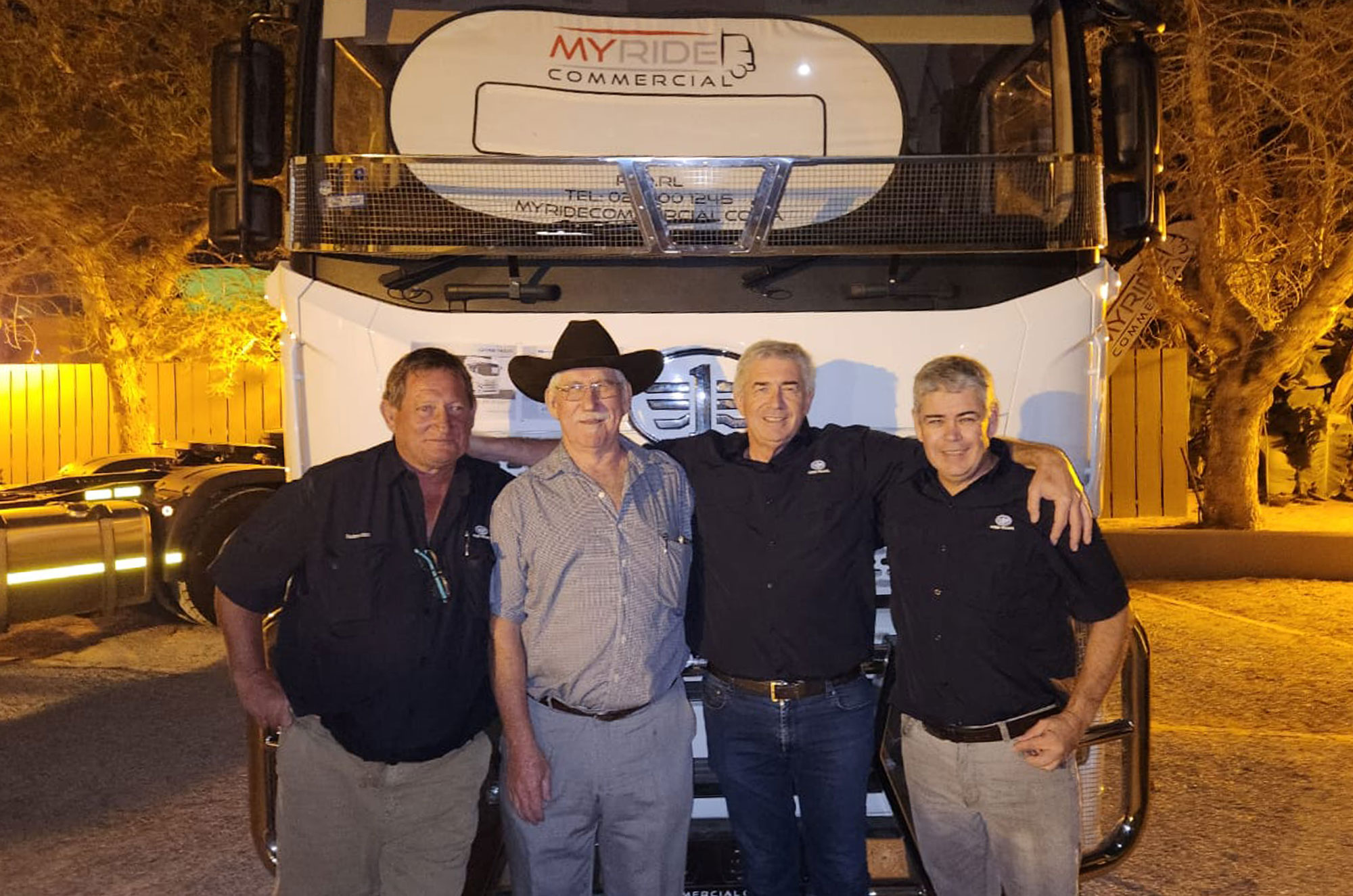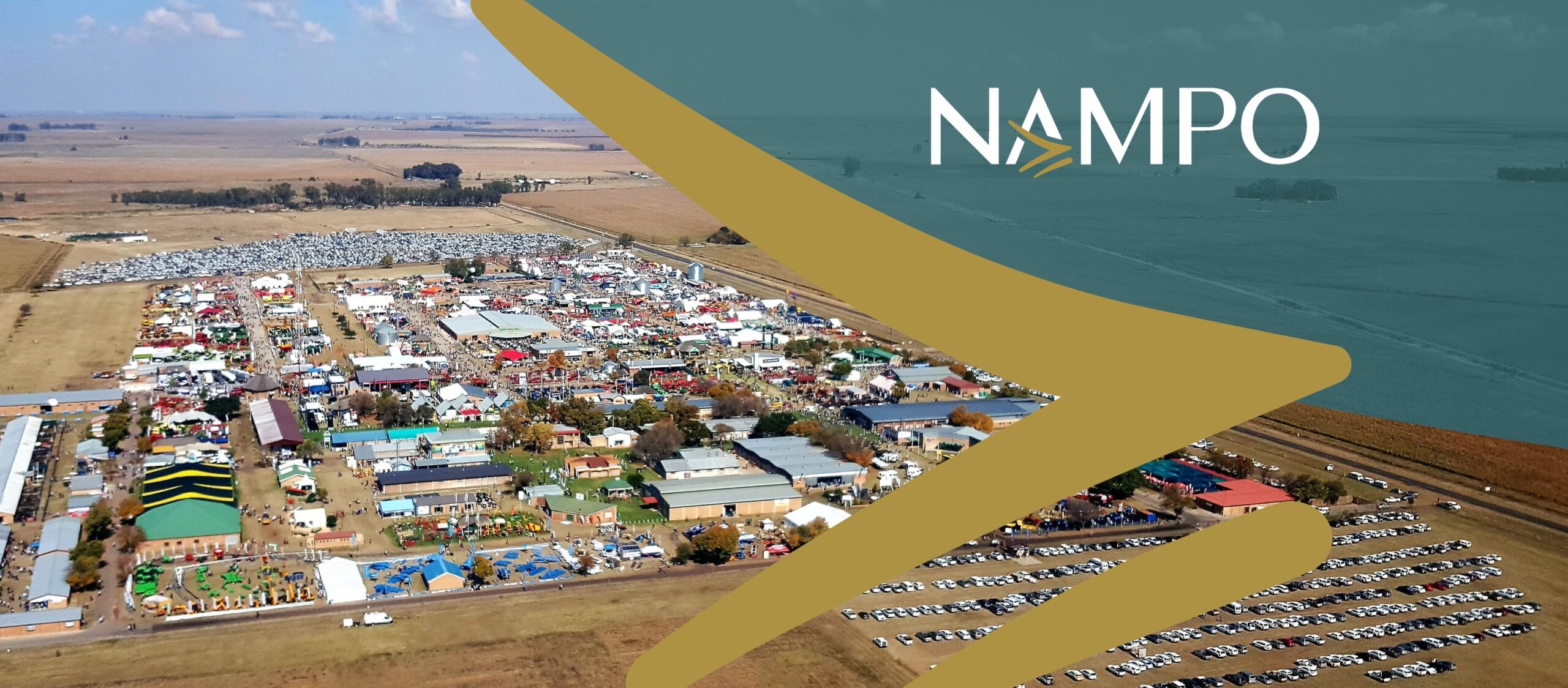Ian Cunningham (37) a deciduous fruit and wine grape farmer of Elgin and Villiersdorp, was named Agri Western Cape Santam Agriculture Young Farmer of the year in Durbanville this week.
Background
Ian grew up on a farm in the Ixopo area of KwaZulu-Natal, where his stepfather farmed timber, potatoes and beef.
He attended a farm school Lynford which his stepfather had a large role in starting with the community, before he joined Hilton College in Hilton, where he matriculated in 2003.
He took a gap year, which he spent sailing in the Mediterranean
From 2005 to 2009 he studied business science, economics and finance at the University of Cape Town.
He was selected to join the Standard Bank Leadership Development Programme before joining PSG Asset management as a fund administrator.
He met Inge during the programme. They married in when and have two sons, MacGregor (4) and eight-months old Harvey. They live on the Fine Farms in Elgin.
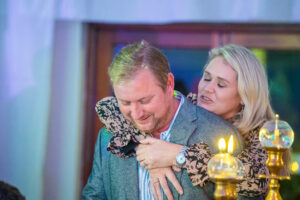
Ian and wife Inge after he was announced as winner. (Source:Dewald Kirsten, Lucentlands)
How did he end up in the Western Cape?
“The farm in KZN was expropriated in 2009. In the same year, we bought Fine Farms in Elgin, where we grow apples, pears and wine grapes. Since then, we have just gone from strength to strength.”
Fine Farms consists of 160 ha, of which 120 ha arable land is producing apples pears and wine grapes. At the end of 2020 they also added Carmel, a small piece of land that was acquired for its strategic water reserves.
Also in 2020, they bought High Noon farm from the Crookes Brothers Limited. They took ownership of the 1 800 ha in November of that year. “The farm is situated in a great apple growing area with secure water and a unique microclimate with high chilling units.”
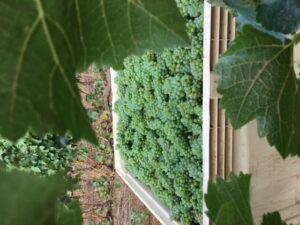
Shiraz, Chardonnay and Sauvignon blanc grapes are cultivated and go to Iona, Richard Kershaw and Colmant.
Legacy
The legacy that he would like to leave is two-fold. “I would like to leave the condition of the soil and the farm in a better state than I found it. Constant tilling has a negative influence on the soil. To counter it, I have a relentless focus on cover crops and the use compost, mulch and as much organic matter as possible to regenerate the soil.”
Ian also believes a farmer must have an inclusive relationship with his staff, and that is the second legacy he would like to leave. “You need a reliable labour force if you want to succeed in farming. I realised there was a need for rehabilitating the community, which would solve a lot of social ills and eventually be positive for the farm.”
“Having two boys made me realise what influence the family environment can have on the youth.” He started two youth centres to create a safe environment for them where drug and alcohol abuse can be addressed.
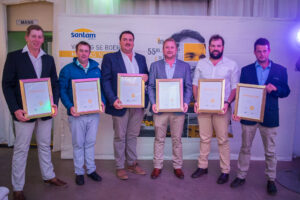
Lochner Eksteen, Derec Giles, Christiaan Cronje, Ian Cunningham, Chris-Thys Groenewald and Kleinjan Teubes. (Source:Dewald Kirsten, Lucentlands)
Mentors
Ian regards his father and stepfather, who have both sadly passed away, as his most important mentors. “They instilled in me a love of the outdoors, nature and farming. Although I studied finance, my family has been farming for three generations…”
He also holds his mother, Janine Richmond, in high esteem. She has farmed in various areas and has always come out on top, no matter the challenges. I am privileged that she has entrusted me with custodianship of our family business.
Bokkie Thiersen, farm manager at Fine Farms, is another valuable mentor. “He has been like a father to me and taught me everything about technical expertise that apple farming requires.
Most of all, he appreciated Inge’s input in his decisions. “I really value Inge’s advice and I run all my decisions by her. It takes a partnership to run a business.”
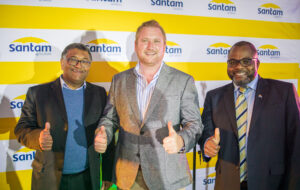
Agricultural Development and Support Services and dr. Mogale Sebopetsa of Agriculture with Ian (centre). (Source:Dewald Kirsten, Lucentlands)
Challenges
Like other industries, farming also has its challenges, such as rising input costs. “We are price takers, and we can’t do anything except becoming smarter and countering the challenges by mitigating them.”
The threefold increase in fertiliser costs made them look at the exclusive use of compost. “I stand on the shoulders of giants – I learned about the use of compost from ZZ2’s Natuurboerdery, following them closely in working with nature instead of against it. I learned from cover crops from the grainland guys…”
Labour
“Agriculture can absorb a large proportion unskilled labour, despite rising labour costs. In the export business, our relatively affordable labour gives us a competitive edge over other countries, where labour is much more expensive.
“We cannot farm without labour, so instead of reducing the use of our workers, we have to maximise their output.”
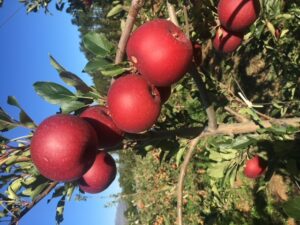
Ian farms with apples, pears and wine grapes.
Climate change
“We are stuck in this environment and all we can do about it is to mitigate the risk. We use probes to constantly log the soil moisture content, and during the dry years, we irrigated in the evenings to minimise transpiration. We also use nets to prevent sunburn on our Granny Smith apples – farmers in the Ceres area uses nets to minimise hail damage.”
He believes improving plant pathology in order to make plants as strong and robust as possible, is also a form of mitigation, and improving the soil will help face the challenges of climate change.
“I’m positive about agriculture. The world cannot live without our industry because there will always be a need for food – and all sector has challenges, you must just be innovative.
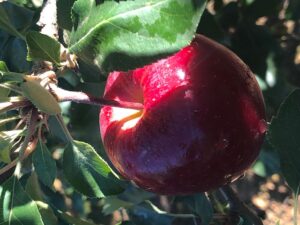
Red apples include Gala and Pink Lady cultivars.
“Our generation seeks instant gratification. With the incredible amount of reading material and literature, we are not afraid to ask questions – we don’t have to do things our fathers and grandfathers did it. Technology is pointing us in the right direction.”
Other participants included Christiaan Cronje (29), from Riversdal, Chris -Thys Groenewald (30) of Riviersonderend, Derec Giles (40) of Uniondale, Kleinjan Teubes (32) of Vredendal, and Lochner Eksteen (24) of Piketberg.
The panel of adjudicators visited the six competitors on their farms. According to Jannie Strydom, CEO of Agri Western Cape, the young farmers’ ability to manage their different commodities was taken into consideration, but the way their management philosophy was reflected in practice was decisive.
Besides Jannie Strydom, CEO of Agri Western Cape, the panel consisted of farmers Inus Oosthuizen of Koue Bokkeveld, Sas Oosthuizen of Wellington, Louis Wessels of Albertinia, Andre Bloem (labour specialist), Pieter Plaatjies (Santam Agriculture), and Arno Cloete and Andries van Zyl (FNB).

